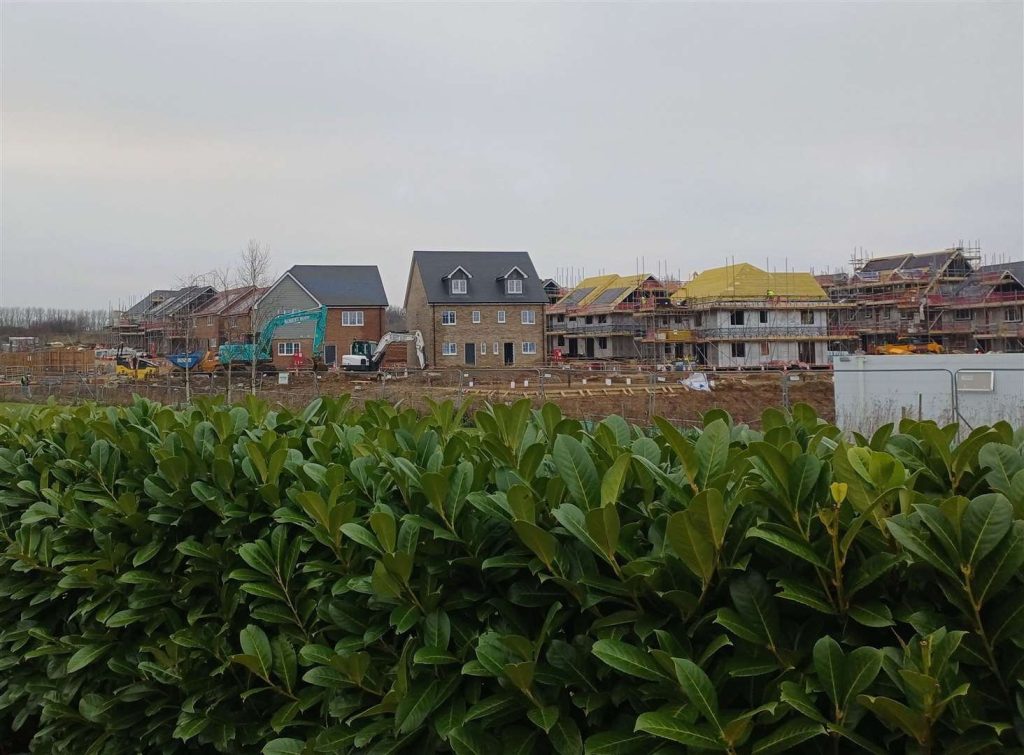The Castor Park Nightmare: A Case Study in New-Build Sewage Woes
Residents of Castor Park, a new-build estate in Allington, Kent, are facing an ongoing sewage crisis that has transformed their dream homes into a nightmare. Since December 2023, the nine households on the estate have been grappling with a faulty sewage system, enduring overflowing toilets, raw sewage backups, and mounting repair costs exceeding £50,000. The residents, including families with young children, live in constant fear of sewage overflows and the potential health hazards they pose. The seemingly idyllic setting of their new homes is now punctuated by the regular arrival of sewage tankers, a constant reminder of the underlying infrastructure failure. The residents’ quality of life has been severely impacted by the persistent stress and the financial burden of constantly addressing the sewage issue. They feel trapped in their homes, unable to sell due to the ongoing problem, and burdened by the escalating costs of managing a failing system they believe should not be their responsibility.
At the heart of the issue lies a dispute over the responsibility for maintaining the estate’s sewage pump and pipework. The properties were built in 2018 by Clarendon Homes, who installed the sewage system. Clarendon asserts that the system was installed correctly and operated without issue for seven years, placing the onus of maintenance on the homeowners. However, residents argue that the responsibility should fall to Southern Water, the utility company they pay for waste removal services. Complicating matters further is the involvement of Integra, an insurance company with whom Clarendon had a ten-year policy covering building defects. When an investigation revealed significant flaws in the sewage system’s pipework, including crushed pipes due to improper backfilling, Integra denied the claim, stating that “communal sewers” were not covered under their policy. This has left the homeowners in a precarious position, stuck between the builder, the insurer, and the utility company, with no clear path to resolving the issue.
The residents’ mounting frustration is compounded by the lack of accountability and the apparent unwillingness of any party to take responsibility for the flawed system. They feel abandoned and misled, having been assured by the builder that the system was fully insured and would function as expected. The financial strain is immense, with each household contributing significant sums for emergency sewage removals, pump replacements, and expert investigations. The ongoing cost of living crisis exacerbates the burden, making it increasingly difficult for residents to afford the unexpected expenses. They find themselves trapped in a cycle of reactive maintenance, forced to address recurring overflows rather than addressing the root cause of the problem.
Adding to the residents’ anxieties is the ongoing construction of over 100 new properties adjacent to their estate. While the developers of the new estate, Penenden Heath Developments, have assured residents that their sewage system will be entirely independent and will not impact the existing infrastructure, the Castor Park residents remain skeptical and fear that the construction activities could exacerbate their existing sewage problems. The looming presence of the new development serves as a constant reminder of the potential for further complications and underscores the systemic issues surrounding new-build developments and their integration with existing infrastructure.
The Castor Park sewage saga highlights a growing concern in the UK regarding the responsibility for maintaining essential utilities in new-build developments. As the country experiences a housing boom, there are increasing calls for stronger regulations and clearer lines of accountability to prevent similar situations from arising elsewhere. The Castor Park residents’ experience underscores the need for a robust framework that ensures developers, utility companies, and insurers work together to address infrastructure issues promptly and effectively, rather than leaving homeowners to bear the financial and emotional burden of faulty systems. The residents’ ongoing struggle serves as a cautionary tale for prospective homeowners and a call for greater transparency and accountability in the new-build housing sector.
The residents of Castor Park find themselves at an impasse, caught in a bureaucratic web of denials and shifting responsibilities. They have spent considerable time, money, and emotional energy trying to resolve the sewage issue, yet they remain without a clear solution. Their dream of owning a new home has turned into a constant struggle, marked by the unpleasant reality of recurring sewage overflows and the financial burden of maintaining a failing system. Their case highlights the urgent need for greater oversight and clearer regulations in the new-build housing sector to protect homeowners from similar nightmares. The residents of Castor Park are not just fighting for their own homes; they are fighting for a system that prioritizes the well-being and safety of all new-build homeowners.











